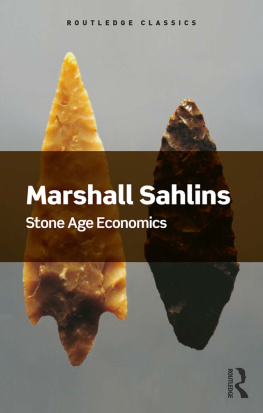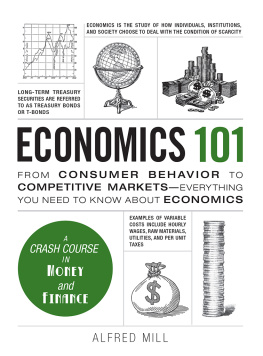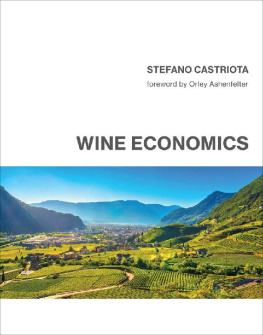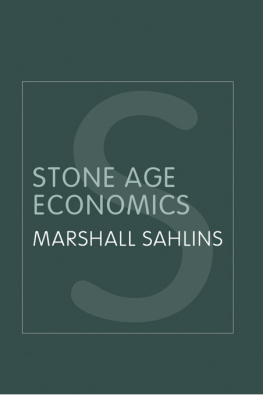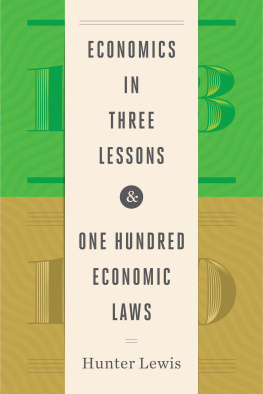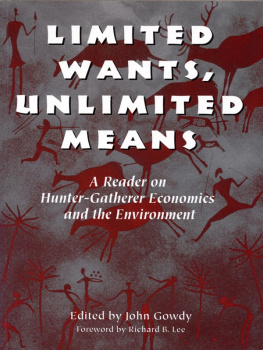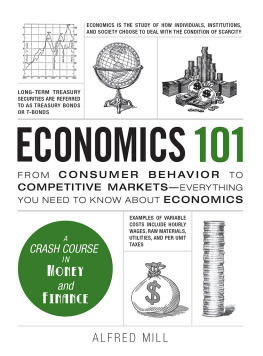Stone Age Economics
Sahlins forays into economic anthropology are full of interest.
Cyril S. Belshaw, American Anthropologist
Stone Age Economics , while not a survey of the economic anthropology, is as of now the most sophisticated, extensive presentation, and argument in and about, the field.
Walter C. Neale, Science
This book is subversive to so many of the fundamental assumptions of Western technological society that it is a wonder it was permitted to be published.... Professor Sahlins directly challenges the idea that Western civilization has provided greater leisure or affluence, or even greater reliability, than primitive hunter-gatherers.
Whole Earth Review
His book is rich in factual evidence and in ideas, so rich that a brief review cannot do it justice; only another book could do that.
E. Evans-Pritchard, Times Literary Supplement
Since its first publication over forty years ago Marshall Sahlins Stone Age Economics has established itself as a classic of modern anthropology and arguably one of the founding works of anthropological economics. Ambitiously tackling the nature of economic life and how to study it comparatively, Sahlins radically revises traditional views of the hunter-gatherer and so-called primitive societies, revealing them to be the original affluent society.
Sahlins examines notions of production, distribution, and exchange in early communities and examines the link between economics and cultural and social factors. A detailed study of tribal economies, domestic production for livelihood, and of the submission of domestic production to the material and political demands of society at large, Stone Age Economics regards the economy as a category of culture rather than behavior, in a class with politics and religion rather than rationality or prudence. Sahlins concludes, controversially, that the lives of those living in subsistence economies may actually have been better, healthier, and more fulfilled than the millions enjoying the affluence and luxury afforded by the economics of modern industrialization and agriculture.
This Routledge Classics edition includes a new foreword by David Graeber, London School of Economics.
Marshall Sahlins is Charles F. Grey Distinguished Service Professor Emeritus of Anthropology and of Social Sciences at the University of Chicago.
Routledge Classics contains the very best of Routledge publishing over the past century or so, books that have, by popular consent, become established as classics in their field. Drawing on a fantastic heritage of innovative writing published by Routledge and its associated imprints, this series makes available in attractive, affordable form some of the most important works of modern times.
For a complete list of titles visit www.routledge.com/classics
Marshall Sahlins
Stone Age Economics
With a new foreword by David Graeber
First published in Routledge Classics 2017
by Routledge
2 Park Square, Milton Park, Abingdon, Oxon OX14 4RN
and by Routledge
711 Third Avenue, New York, NY 10017
Routledge is an imprint of the Taylor & Francis Group, an informa business
1972, 2003, 2017 Marshall Sahlins
Foreword 2017 David Graeber
The right of Marshall Sahlins to be identified as author of this work has been asserted by him in accordance with sections 77 and 78 of the Copyright, Designs and Patents Act 1988.
All rights reserved. No part of this book may be reprinted or reproduced or utilised in any form or by any electronic, mechanical, or other means, now known or hereafter invented, including photocopying and recording, or in any information storage or retrieval system, without permission in writing from the publishers.
Trademark notice: Product or corporate names may be trademarks or registered trademarks, and are used only for identification and explanation without intent to infringe.
First edition published by Aldine de Gruyter, a division of Walter de Gruyter, Inc. and Routledge 1974
British Library Cataloguing-in-Publication Data
A catalogue record for this book is available from the British Library
Library of Congress Cataloging-in-Publication Data
Names: Sahlins, Marshall, 1930- author.
Title: Stone age economics / Marshall Sahlins; with a new foreword
by David Graeber.
Description: Milton Park, Abingdon, Oxon; New York, NY: Routledge Classics,
2017. | Includes bibliographical references and index.
Identifiers: LCCN 2017009801| ISBN 9781138702608 (hardback) |
ISBN 9781138702615 (pbk.) | ISBN 9781315184951 (ebook)
Subjects: LCSH: Economic anthropology.
Classification: LCC GN449 .S24 2017 | DDC 306.3--dc23
LC record available at https://lccn.loc.gov/2017009801
ISBN: 978-1-138-70260-8 (hbk)
ISBN: 978-1-138-70261-5 (pbk)
ISBN: 978-1-315-18495-1 (ebk)
Typeset in Joanna
by Apex CoVantage, LLC
For Julia, Peter, and Elaine
CONTENTS
Guide
Back when I was an evolutionary anthropologist, I learned that the most successful species are those which remain the most generalized. If I hadnt learned that I would probably still be an evolutionary anthropologist.
Marshall Sahlins
I would like to use the occasion of this foreword to call for Marshall Sahlins to be nominated for a Nobel Prize in Economics.
Surely if Bob Dylan merits a Nobel in literature, the author of Stone Age Economics , and of so many other works that have fundamentally changed our conceptions of the very nature and purposes of economic life, would be a worthy candidate for the prize in economics. The essays assembled in this volume have had a profound impact on any number of academic disciplinesthe notion of the three circles of reciprocity developed in On the Sociology of Primitive Exchange alone has been adopted by archaeologists, historians, classicists, literary theorists, political theorists, psychologists, art historians, sociologists, philosophers, and students of religion. Perhaps the only discipline that has never made significant use of the theoretical tools provided in this collection is economics itself. But then, economists have a long history of rejecting any terms other than their own, convinced they are engaged in something akin to natural science with unique insight into human rationality (that is, they have come to believe that, perhaps alone among the social sciences, they really are scientists, and simultaneously, that they study that domain of human life where people themselves behave most scientifically), they evince a notorious disinterest in theoretical tools developed by anybody else. Economics is perhaps the most insular, the most self-enclosing of disciplines. Which is why it is the most in need of a jolt from the outside.
Granted, history itself has recently dealt economics some jolts of its own. The crash of 2008 might, historically, come to be seen as something of a turning point. Economics had acquired such unprecedented prestige in the 1980s and 1990s that it was being treated like a kind of master discipline, to the point where anyone considered fit to run anything significant, even a university or charity, was expected to have at least some training in it. But this prestige was largely based on having convinced the world that economics, as a discipline, had itself been responsible for creating a genuinely efficient, rational, self-sustaining global system. Then of course, it all blew up. The fact that virtually every major economist was taken entirely by surprise when it did so (about the only exceptions were a few oddballs, Marxists, Minskyians, and the like, scoffed at by the rest of the discipline), left many asking: What is it that economists are really good for? What is it they actually do? What purpose is really served by the existence of the discipline?

